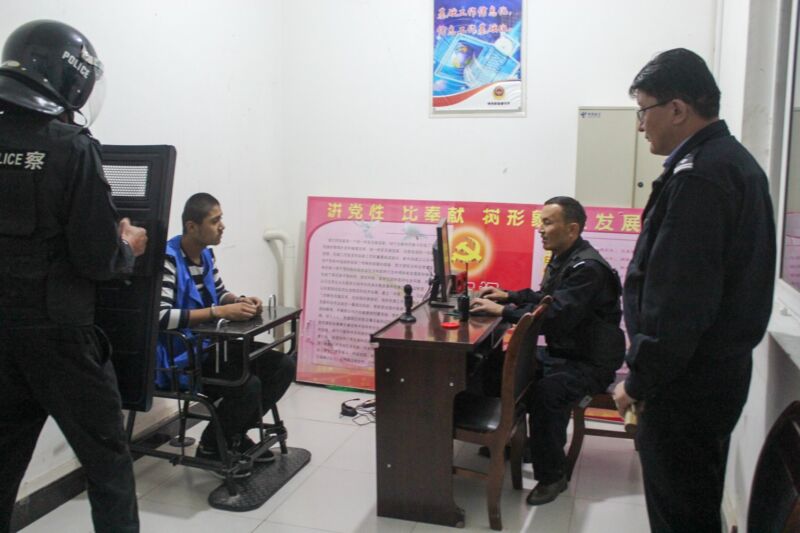Thousands of graphic images and videos of Uighur prisoners suffering in internment camps in China have been obtained through a hack on the police server. Training manuals, police work rosters, and instructions for guarding the camps are included with the images. One document states that if students do not respond to warning shots and continue to try to escape, the armed police shoot to kill. One prisoner is in a tiger chair, which is an iron torture device, and it immobilizes the arms. One of the outlets that published the tranch of hacked photos and documents said it confirmed their authenticity by analyzing gps data in some of the images. The material is unprecedented on several levels, according to Dr. Adrian Zenz, director and senior fellow in China Studies at the Victims of Communism Memorial Foundation. His thread provided a broad overview of the leaked materials that included high-level speeches, implicating top leadership and containing blunt language. The material is unprecedented on several levels:1. High-level speeches, implicating top leadership and containing blunt language 2. Camp security instructions, far more detailed than China Cables, describe heavily armed strike units with battlefield assault rifles pic.twitter.com/tQUSXJU0pF
Most of the images and documents can be found on a dedicated site. There are images of 2,884 prisoners, training images and Powerpoint documents for security drills, and speeches and directives from top government officials documenting Beijing's knowledge and backing of the camps and policies.
The details of the hack that made the items available are not known. The source of the files claims to have hacked, downloaded and decrypted them from a number of police computer server in China, before passing them on to Dr. Adrian Zenz, a scholar at the US-based Victims of Communism Memorial Foundation.
The Chinese Embassy in Washington, DC, issued a statement to the British Broadcasting Corporation that said that the issues of violent terrorism, radicalization, and separatism are not about human rights or religion.